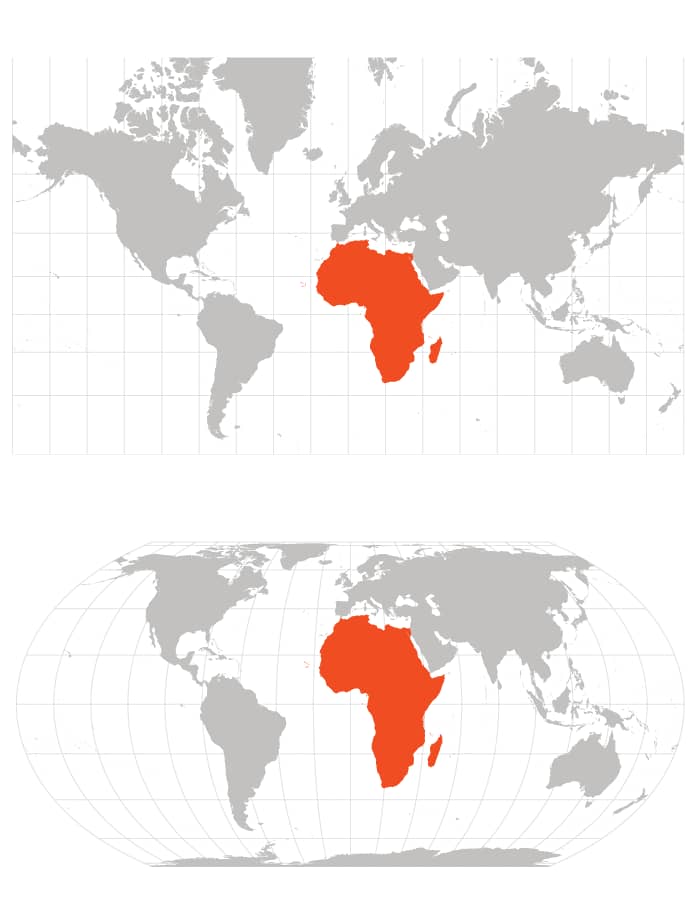
A new movement aims to revolutionize cartography by introducing a more accurate map, challenging the long-standing dominance of the traditional Mercator projection, which distorts continent sizes.
The African continent is approximately three times larger than Europe; however, this size disparity is not accurately represented on the widely utilized Mercator map. Recently, the African Union, comprising 55 member states, has lent its support to a global initiative advocating for the adoption of alternative cartographic projections, such as the 2018 Equal Earth map, which purportedly provides a more precise depiction of Africa’s geographical dimensions.

When viewed through the lens of the Equal Earth map, Africa’s enormity becomes strikingly apparent, far surpassing Europe in size. Selma Malika Haddadi, a high-ranking official in the African Union, underscored the significance of cartographic representations, warning that the Mercator projection’s distortions can lead to a diminished perception of Africa’s importance on the global stage.
The Mercator map, devised by Flemish cartographer Gerardus Mercator, has faced criticism for decades due to its limitations. Originally designed to facilitate navigation for European explorers, the map’s projections distort the size and shape of landmasses, leading to geographical inaccuracies.
The Mercator map’s distortions are starkly illustrated by comparing Greenland (under 1 million sq mi, 57,000 people) to Africa (11.73 million sq mi, 1.5 billion people), which are depicted as roughly equivalent in size despite their vastly different actual proportions.
The inaccuracies of the Mercator map were humorously highlighted in a 2001 episode of “The West Wing,” where a group of cartographers advocated for a change. Similarly, a contemporary campaign, “Correct the Map,” led by organizations such as Africa No Filter and Speak Up Africa, aims to bring attention to this issue. The campaign has prompted the African Union to consider adopting the Equal Earth map, with an official decision anticipated in February during the group’s meeting in Ethiopia.
The campaign has launched an online petition calling on prominent organizations, including the United Nations and the BBC, to adopt the Equal Earth map. By doing so, these institutions would set a precedent for accurate geographical representation, highlighting Africa’s significant contributions to global growth and development.

